2015 Challenges & Solutions
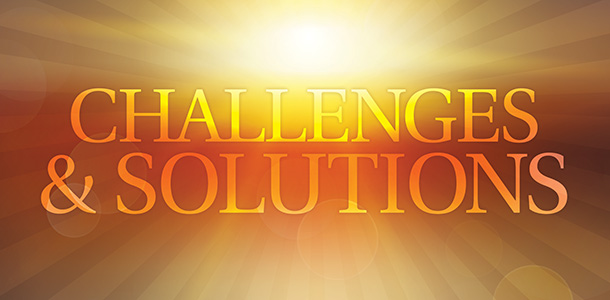
Industry leaders share their thoughts on the top issues facing the boating industry this year
To go beyond the numbers, we asked several industry leaders what they saw as the key challenges the marine industry will be dealing with in 2015 and beyond.
In the print edition, some answers were edited for space or clarity. You can read more from these industry leaders and others below.

Bruce Van Wagoner
President, marine group, GE Capital, Commercial Distribution Finance
One of our greatest challenges is to improve industry data with better accuracy and timeliness to optimize inventory levels. Taking advantage of this Information Age will allow manufacturers and dealers to make better decisions to improve profitability. As an industry we must commit to establishing a standardized inventory tagging system similar to the auto industry. By continually monitoring the location and potentially condition of boats, motors and trailers we can improve management efficiencies and drive down carrying costs. This process may take longer than 2015.
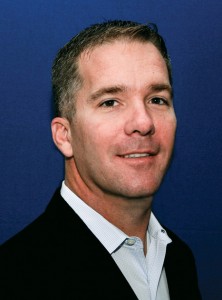
John Giglio
President/CEO, Freedom Boat Club
Affordability remains at the top of the list as the industry’s biggest challenge. All of the great marketing in the world won’t matter if we price ourselves out of the market and make the cost of entry too high. I’ve personally heard some manufacturers commit to reducing the costs of their boats and I hope that happens. However, as an industry, we need to innovate and collaborate together to jointly promote other affordable options of introducing newcomers and younger people to boating. Of course we advocate boat clubs, but other attractive gateway points of entry include rentals and fractional programs.
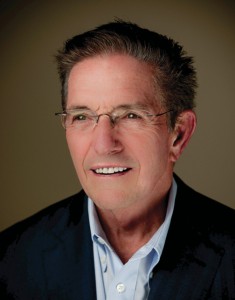
Bill McGill
CEO, chairman and president, MarineMax, Inc.
The biggest challenges which our industry faces are external and beyond our control as they create uncertainty in the consumers’ minds which impacts their purchase eagerness. The things which we as an industry can control revolve around affordability of our recreation. When times are uncertain and customers are faced with challenges in their own jobs and businesses, they are more prone to seek out our great recreation for stress relief and family bonding. Getting the message out by delivering great experiences for our customers and marketing efforts showing that boating is really life changing, affordable and the best family recreation in our opinion should be the main thrust of our industry.
Steve Baum
President, Boat Owners Warehouse and chairman, MRAA
The biggest challenge we are currently facing is finding qualified, motivated technicians. We need to make sure that we as individual businesses as well as an industry are supporting all of the current programs that are in place to train workers, such as vocational schools. We need to get the word out that the marine industry is a great way to make a living, we have good quality, high paying jobs that can provide a future for anyone interested, not to mention that we are an industry dedicated to having fun. This needs to start at the middle and high school level. Students at that level need to be exposed to the opportunities available in our industry so they can start thinking along those lines. We just hired a graduate of the Riviera Beach Marine Academy which is a high school program dedicated to maritime pursuits, we got a great new hire with a knowledge base in what we do, because he was in the program. We need more of these programs around the country.
Mark DiPietro
Group manager, Honda Marine
With gasoline prices in check and slow but steady growth in the overall economy, our top priority is bringing new boaters into the market. At Honda Marine we are addressing this challenge by promoting our unique strengths: the strongest brand name in the business and a great value. Working with boat builders and our dealer network we want to drive demand for Honda outboards, giving confidence to the consumer that the boating industry is a very worthwhile recreational activity on all fronts: fun for the family, great power, performance, fuel economy, and overall a great way to experience the outdoors.
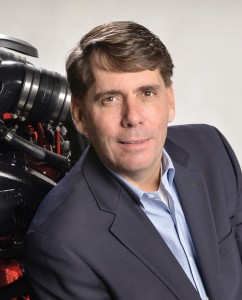
Ron Huibers
President, Volvo Penta of the Americas
There are plenty of challenges on the horizon for the boating industry. I’ll focus on two of them.
The first is continuing to attract new families and generations into boating as a preferred leisure lifestyle choice. We have demographics in our favor, with boomers in better financial condition and millennials who want to share experiences with their extended families. To that end, Discover Boating is doing a commendable job of promoting the boating experience, and boat shows help to generate excitement and drive sales in the market. It will be interesting, too, to see what impact the new “boat clubs,” which offer an alternative pathway into the boating experience without ownership, will have on market growth.
Our challenge is to deliver on the expectations that are being stimulated by these marketing initiatives – and create a new generation of lifetime boaters with a passion for the lifestyle.
We believe that one of the keys to growing the industry is a perpetual infusion of innovative technology. Innovation sells. That’s one of our driving forces at Volvo Penta. Our “Easy Boating” initiative focuses on innovations that make the boating experience easier and more fun – especially for new-generation boaters. And don’t forget that attracting new boaters is only half the challenge; the other half is keeping them. That means durable high-quality products, responsive after-the-sale support, strong factory warranty programs, reliable and efficient dealers, and a healthy trade-in market. Our “Easy Boating” initiative is designed to attract and keep people boating.
The second challenge is the race for talent in a seasonal and cyclical industry. As the recovery from the deep recession continues to gain momentum, there is increased competition for talented and trained employees. The industry must find ways to attract and sustain the talent pool – to include entry-level training, professional development and a pathway to success.
We see an improving climate for our industry and even better days ahead.

Thom Dammrich
President, National Marine Manufacturers Association
No. 1 we’ve got to get some amendment to the Renewable Fuel Standard to address this ethanol issue, capping the amount of ethanol in gas at 10 percent.
We’ve got to get Magnuson-Stevens reauthorized in a manner that is positive for saltwater recreational fishing. One of the hot segments has been the saltwater fishing boats, but if we don’t get common-sense regulation, that will negatively affect that market.
There’s also an issue with the foam that is used for flotation in most boats. EPA wants to phase it out within a year. There is no suitable replacement for it, so we’ll be working to get that phase-out pushed back to 2020.
And we also have the traditional industry issues that the Recreational Boating Leadership Council is focused on addressing: youth, affordability, education, diversity. We still have got to find a way to get the industry more in tune with reaching out to a more diverse audience.

Bill Yeargin
President & CEO, CorrectCraft
I tend to think long-term so I would like to answer your questions from that perspective. Some of the things that I believe will be significant challenges to our industry are:
• Asian competition – I have traveled extensively through Asia meeting with government officials and many people from various industries and the recreational boat industry is definitely on the list of industries that have been targeted by Asian companies and countries. I have been told directly of significant government investment being made to break into our industry and have heard of one Asian country that has duplicated a US boat manufacturing plant to learn how to build boats. The initial product from Asia may not seem that impressive but over time they will be a significant force.
• Employees – Finding good people will continue to be a problem. Earlier this year I was at a meeting of nearly twenty boating industry CEOs and we went around the room to list our biggest problem. I would guess sixteen of the twenty said their biggest problem was finding good people. Interestingly most were not looking for highly trained people they were looking for people with good “employability” skills. Most of us are happy to train if we can find someone who will show up every day on time and work hard while they are there. A growing economy and retiring baby boomers are going to make this problem significantly worse. We could find our country in a position where we need immigration to fill open jobs.
• Shortage of fishing areas – If you follow the current trajectory for both fish stocks and fishing bans it does not look good long term for companies who depend on salt water fishing.
• Changing demographics – We have spoken about this ad nauseam for years at our industry conferences but I am not sure we are really doing much.
From a more positive perspective, the United States is poised to have a significant energy windfall over the next few years and should become the world’s largest producer of energy. I hope we have the collective foresight to export this new energy in the form of manufactured goods!
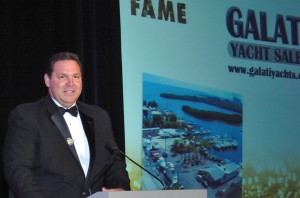 Darren Plymale
Darren Plymale
General manager, Galati Yacht Sales
Galati Yacht Sales is very excited for 2015 and believes there are so many positive key economic indicators playing in our industries favor for having another excellent year following a wonderful 2014.
If there were a challenge facing our industry for 2015, it would be competing with other recreational industries for the consumers’ discretionary dollars. This will require our industry to out perform other competing industries at all touch points with the consumer. This means our sales teams need to exceed the consumers’ expectations in all aspects of the sales process, our customer support teams must take care of them following the sale, and we must create opportunities for the consumer to enjoy events and promotions allowing them to spend time on the water with other like minded boating enthusiast.
We have an incredible opportunity to grow our businesses in 2015. We must work together as an industry in providing the consumer a superior experience on the water.
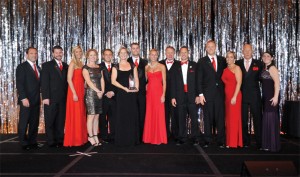 Steele Whowell
Steele Whowell
Director, Gordy’s Lakefront Marine, 2014 Boating Industry Top 100 Dealer of the Year
If I were to pick the single biggest issue that our industry faces – it would be fighting for our customers’ time. We used to have customers that would vacation to the lake Memorial Day to Labor Day. Now with kids’ sports and other activities many of our customers don’t even get to the lake until late June or even early July. Where our main season used to be Memorial Day to Labor Day now it’s condensed to July 1 to mid-August at best. Kids’ sports seem to get more competitive each year and sports programs are having longer seasons and more travel games/events and it is making it harder for families to find time to go boating.
Time at the lake seems to be more of a scheduled vacation vs. “summer at the lake.” That is why we invest so much time and energy into our events to encourage our customers to schedule in their family boat time and show them how much fun it can be. The industry as a whole needs to continue to promote the experiences and memories with family that boating can offer. And that these memories and experiences with those you love are of far great value in the grand scheme of things vs. a few extra baseball practices.
Ben Speciale
President, Yamaha Marine Group
The biggest challenge facing the boating industry in 2015 is legislative. Seventy percent of people who boat also fish. We need to make sure they can keep doing so. That means we need a Magnuson-Stevens Reauthorization Bill passed in the 114th Congress that will include language that helps protect the recreational angler rights. The way to address it is to advocate by writing to your representatives in Congress or meeting with him or her. Yamaha can help with Yamaha Marine Advocacy, an online tool that makes it easy to reach your member with a pre-written message. Also, support the CCA, ASA, RFA and CCC, who have formed a coalition that will fight for recreational fishing and lobby on behalf of recreational anglers.
Joan Maxwell
President, Regulator Marine
The biggest challenge we face is competition from other forms of entertainment. If we can ever get consumers to experience the thrill of being on the water – of catching his or her first fish – they will be “hooked.”
Several years ago the NMMA started a pilot HOST – hands on skills training – program at some of its boat shows. What a great example of one way that we can expose non-boaters or lapsed boaters the fun of boating.
As manufacturers our challenge is designing boats and accessories for ease of use. Our customers and potential customers often have little time or inclination to learn complicated systems or processes, so if we want to compete for their time we need to offer something they can’t achieve anywhere else and make it easier!
Dusty McCoy
CEO, Brunswick Corp.
At Brunswick, we believe that the global economy will remain challenging as conditions continue to improve, with GDP growth in major markets remaining at or below 3 percent. As for the global marine market in particular, our assumptions are for stable to modest growth, with the U.S. market – the world’s largest – approaching 175,000 to 180,000 units of new boat sales over the course of the next 24 months.
That assumption is inclusive of a stabilizing to modestly improving fiberglass sterndrive/inboard boat market, which has not recovered as well over the past few years, as aluminum fish and pontoon boats, which have recovered to 70 and 90 percent of 2007 levels, respectively. But even with such varied results, the industry is fundamentally healthy and will continue to improve. Boaters continue to go on the water at record rates and are highly satisfied with boating lifestyle. However, boating’s value is continually scrutinized as boaters weigh the cost, the time and the effort of boating, particularly relative to other leisure activities.
As an industry, we need to better understand consumers and deliver on their desires and aspirations for boating to make their time on the water all that they wish. Concurrently, we must drive out unnecessary costs to make boating a pastime that is more economical, affordable and attractive. To do so, we must seek product feature innovation that is meaningful and resonates with consumers. We can do this through deeply understanding consumers’ needs and motivations and then better incorporating those desires into our products and marketing, while being mindful that we must do all what we can to reduce the consumers’ investment to participate in boating.
In short, our belief is that marine manufacturers need to win on product, as well as address the cost and value of product to lure and retain boaters, convert used boat owners into new boat owners and ensure the long-term health of the industry no matter the economic or political challenges.




